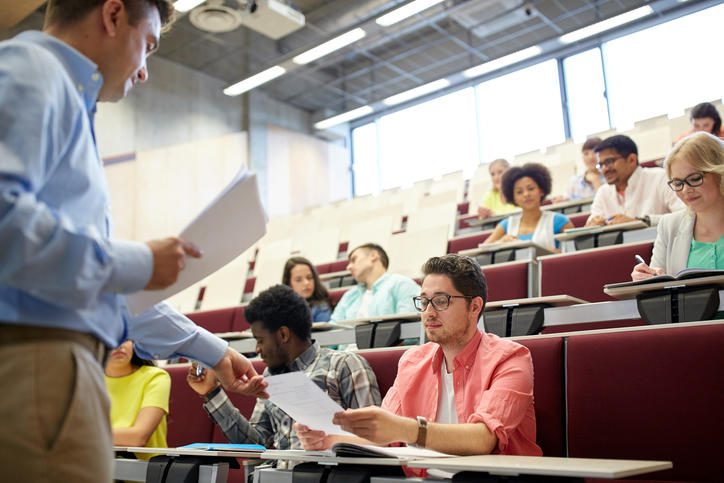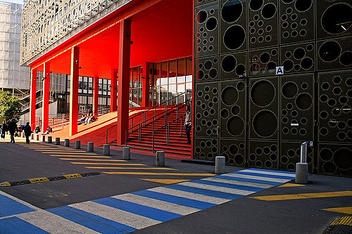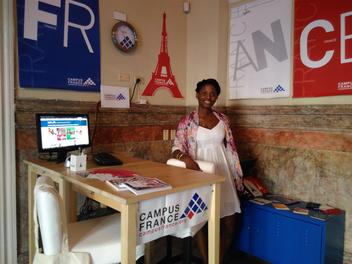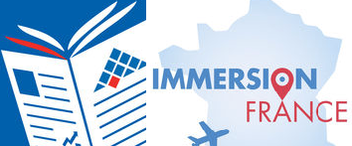In France, there are a large number of higher education programmes available, accessible to foreign students whether they speak French or not. Find out which lycées, universities and Grandes Ecoles have their doors open.
A diversified higher education offer
French higher education involves 2.5 million students. 12% of them are from abroad. All of them are benefiting from highly diversified training, and they are enrolled in every field, at every level.
There are more than 3,500 public and private institutes of higher education in France: 72 universities, 25 multi-institute campuses, 271 Doctoral schools, 227 engineering schools authorised to award the title of engineer, 220 business and management schools, 45 post-secondary public schools of art, 22 schools of architecture and 3,000 private schools and institutes.
Some of France's 3,000 high-schools provide courses in preparation for entry to the Grandes Ecoles, the classes préparatoires (CPGE), others have two-year technical programmes, called sections de techniciens supérieurs (STS), or classes in preparation for the national Brevet de technicien supérieur (BTS).
More than 1,200 classes are provided in English. Find out which in the catalogue Programs taught in English. Short programmes that consist of learning French thanks to cultural visits are also offered to foreign students. They are detailed in the catalogue of short programmes and in our Immersion France application.
There are more and more MOOC offered in French. The acronym FUN, for France Université Numérique (Digital University France), refers to the first French online course platform. It provides nearly 300 courses from over 80 institutes, with enrolment near the one million mark.
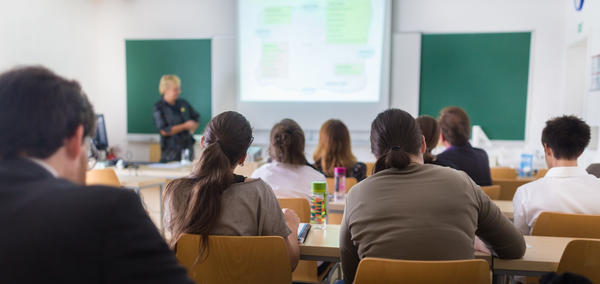
A tight academic schedule
In France, the academic year begins in September or October, depending on the institution and programme. It is punctuated by holidays, including two weeks at year-end. At the end of the first semester, classes are briefly interrupted for exams. The summer holidays start in May or June at the end of the second semester exams. In general, these holidays last at least two months.
Class formats in higher education in France
In French universities, instructors and researchers give students two types of classes:
- cours magistraux (lectures): a professor presents a subject to students in an amphitheatre for 100 to over 1,000 people. These non-mandatory classes are often written up and handed out by the instructors to students in the form of pamphlets, which can prove very handy when it comes time to revise for exams at the end of the semester;
- travaux dirigés (TD - tutorials) and travaux pratiques (TP- practical or lab work): these mandatory classes are for smaller groups and are a complement to the lectures, with the intention of applying and deepening theoretical understanding. Company internships may also be required in addition to the tutorials and practical work.

Certifying academic knowledge
There are two ways that knowledge is tested in the French higher education system. Ongoing assessment evaluates what has been learned throughout the year, with regular testing in each subject matter. There are exams given twice per year, at the end of each semester, for all subjects.
Level of French required for foreign students
If you are taking a course provided in English, French is not required. Nonetheless, the institution in question may test your level of English.
On the other hand, if you are taking courses in French, remember that foreign students must present a document attesting to their level of French. You can obtain one by sitting an official French exam or test, such as the DELF, the DALF, the TCF or the TEF. The common reference is that of the Common European Framework of Reference for Languages (CEFR). Foreign students who have received a French high school diploma in an AEFE (Agence pour l’Enseignement du Français à l’Etranger - the Agency for French Education Abroad) institution are exempt.
Level B1 or B2 is recommended for studying at the undergraduate and Master's level, and especially in the humanities and social sciences. Level B2 is required for admission to 1st year in the framework of the DAP (demande d’admission préalable - preliminary request for admission). Some French institutes of higher education may require a higher level, C1 or C2, for specific programmes.


















































